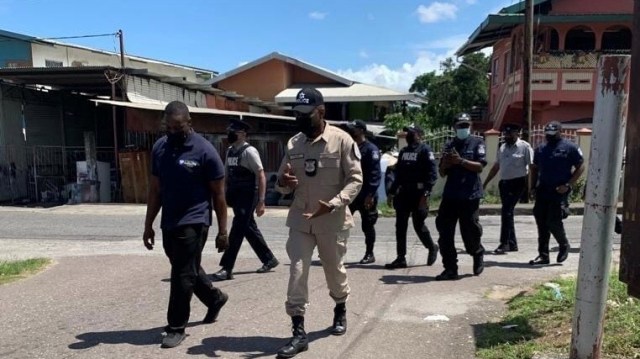
Trinidad and Tobago security forces are bracing themselves for a new wave of violence, while beefing up capabilities to combat crime, as gangs splinter and new leaders attempt to establish control.
By Diálogo Américas – Nathalie Gouillou
Jun 29, 2022
According to the country’s intelligence body’s latest security report, the Strategic Services Agency (SSA) 2021 Annual Report, released in late May 2022, the Caribbean nation is expected to see an increase in murders, shootings, and other crimes, such as drugs, arms, ammunition, and human trafficking, as criminal gangs splinter and increase in number, daily Trinidad Express reported.
“Newer, younger, more violent leaders are emerging, and existing gangs are disaggregating with an accompanying level of animosity toward each other,” the report says.
While serious crime decreased during the pandemic, since the ending of the state of emergency in November 2021, criminal activities sharply rose, the report indicates. “Despite an initial statistical forecast of 423 murders in 2021, there was an eventual increase by 13 percent in the last two months of the state of emergency,” the report says.
The SSA report also warns that terror actors remain a serious threat to the island nation, aiming “to spread radicalized philosophies through moral panic, and recruit otherwise disenchanted and easily susceptible persons.” According to daily Trinidad and Tobago Newsday, these terror actors are believed to be sympathizers of some 100 local foreign terrorist fighters currently detained in Syria and Iraq.
Gang reduction
Authorities estimate that more than 130 criminal gangs are engaging in high levels of homicides and violence throughout the national territory, Acting Police Commissioner of Trinidad and Tobago McDonald Jacob said in mid-May, during the launch of the Gang Reduction and Community Empowerment (GRACE) program.
“There are an estimated 134 gangs with segments in the different parts of Trinidad and Tobago,” Jacob said, the daily Trinidad and Tobago Guardian reported. “In fact, there are six main gangs.”
The GRACE program, funded by the U.S. Department of State Bureau of International Narcotics and Law Enforcement Affairs, provides $1.5 million in technical assistance to improve law enforcement capabilities of the Trinidad and Tobago Police Service (TTPS), the U.S. Embassy in Trinidad and Tobago said in statement. The 18-month program will support the TTPS’s ability to conduct intelligence-led investigations of gang leaders, while also improving community policing initiatives and supporting grassroots organizations in areas with high concentration of gang activity.
“This program matters,” Chargé d’Affaires at the U.S. Embassy in Trinidad and Tobago Shante Moore said. “Rather than focusing solely on addressing the symptoms of crime, like homicide and gang violence, we must do more to address the root causes. And this program does both.”
The program, Jacob added, will provide officers with additional resources to successfully hold gang members accountable. “This program includes information on the various aspect of law enforcement, prosecution, and cooperation, including, very important, police documentation of gang affiliation and activities,” he said.
In mid-May, the U.S. Drug Enforcement Agency (DEA) also began a training course at the Police Training Academy in Port of Spain for local security forces’ officers on intelligence-gathering skills, Trinidad and Tobago Newsday reported. The training focused on collecting and analyzing information to combat narcotrafficking, the U.S. Embassy in Trinidad and Tobago indicated in a statement.
According to the U.S. Department of State’s 2022 International Narcotics Control Strategy Report, Trinidad and Tobago is a transshipment point for illegal drugs bound for the United States and Europe. Narcotrafficking organizations take advantage of the country’s proximity to Venezuela to traffic illicit drugs through maritime routes.
“Through programs such as this one, the U.S. reaffirms its commitment to sharing best practices when it comes to combating narcotics trafficking,” U.S. Embassy Deputy Chief of Mission Megan Kelly said about the DEA course. “Your success in countering illicit drug trafficking shows the people of Trinidad and Tobago that this democracy can deliver for the people, making Trinidad and Tobago safer, more prosperous, healthier, and more secure, and creating a better region for all of us.”
…
Read More: Diálogo Américas – Trinidad and Tobago: Prioritizing the fight against gang-related crimes
…

